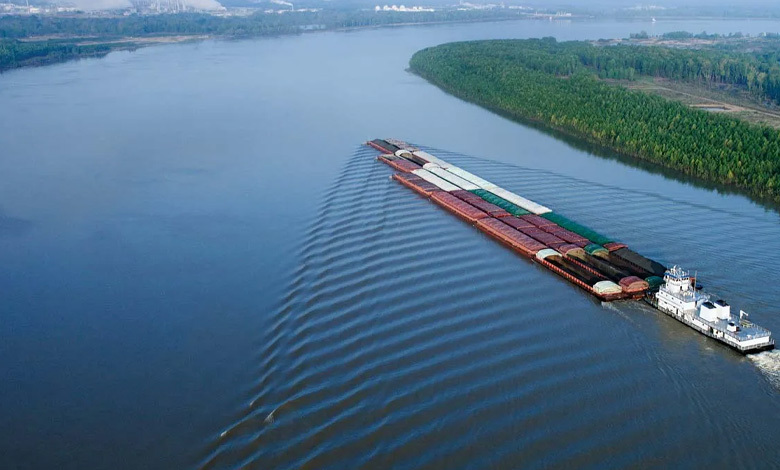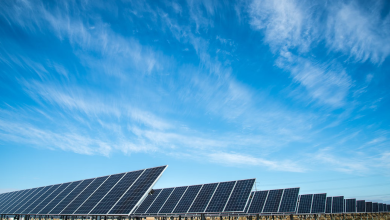Mississippi River Basin: An Environmental Wake-Up Call

The Mississippi River Basin, a vast and ecologically diverse region, holds a special place in the heart of America. Stretching across 31 states, this immense watershed encompasses an array of landscapes, from the rolling hills of the Upper Midwest to the bayous of the Deep South. However, beneath the serene beauty of the basin’s landscapes lies a growing concern that has quietly been stirring in the hearts of its residents. It’s a concern about the environment and a longing for change.
This wake-up call emerges from the heartland, echoing across towns and cities where many don’t even realize they reside within the Mississippi River Basin. The inhabitants of this expansive region are becoming increasingly aware of the environmental challenges it faces, including water quality issues, habitat degradation, and the consequences of climate change. However, as our journey begins to explore these concerns and the desires for a better future, it’s clear that a significant number of basin residents are not fully conscious of their geographic location within this vital watershed.
This article delves into the environmental sentiments of those who call the Mississippi River Basin home, revealing a latent desire for change and improvement. It uncovers the extent of awareness, or lack thereof, about their residence within this ecologically significant basin. The awakening is underway, as the inhabitants of this remarkable region strive to become stewards of its natural wonders and ensure a sustainable future. The Mississippi River Basin is more than just a geographical location; it’s a call to action, a plea for positive environmental change that resonates far beyond its banks.
Read More: UNDP and Italy: Partners in Progress for Long-Term Sustainability
A unique look at the attitudes Mississippi River basin residents have towards climate change and their relationship—or lack thereof—with one of the most significant rivers in the world is provided by new research.
A group of researchers led by assistant professor Kate Rose of the University of Missouri School of Journalism—home of the Mississippi River Basin Ag & Water Desk—conducted the study, which was published on October 23. To learn more about people’s knowledge of environmental issues in the Mississippi River basin, they polled over 2,300 adult residents of the ten states that border the river, including Wisconsin.
Of those surveyed, only roughly half were aware that they were residents of the basin. For instance, only 7.5% of respondents in Kentucky believed they were a part of the basin, even though the state is included.
The Mississippi River receives most of the rain and snowfall that falls on the majority of Wisconsin, which is in the basin. The residual portions empty into Lake Michigan or Lake Superior. The Mississippi River Network’s policy director, Maisah Khan, said that she begins each presentation with a display of a basin map, highlighting the Gulf and the headwaters while elucidating the vastness of the tributaries that flow in. People cannot understand that what occurs on their portion of the river will have an impact downstream if they are unaware that they are in the basin, according to her.
The study emphasizes how important it is for advocates and river scientists to share information about the Mississippi, which is crucial for drinking water, wildlife habitat, and global trade.
“We know some basic knowledge is lacking…but it’s important that people in those states know a little more about those issues that are affecting their daily lives,” Rose stated.
People might not feel like they have much power to change things, even when they are noticed.
Khan stated that people are beginning to worry but don’t feel like they have much control as the effects of climate change become more apparent, such as extreme weather.
That’s extremely concerning, Khan remarked. “It’s simple to feel helpless.”
However, the study also indicated support for other approaches, such as policy reform, to deal with the environmental problems in the basin.
Things to remember:
Drinking water and pollution were the two issues that Wisconsinites were most concerned about.
As part of the larger study, the researchers polled 229 residents of Wisconsin. They divided the results by state according to two categories: the significance of environmental issues and the gravity of the problems that exist today.
• The majority of Wisconsin respondents believed that weather and climate were at least somewhat important, closely followed by water and its quality.
• Drinking water quality, land development, and urban pollution came in second and third, respectively, with 63% and 62% of respondents considering industrial and agricultural pollution to be at least somewhat serious issues in the state.
• While still more than half of the respondents, the fewest considered flooding and water availability to be at least somewhat serious.
The majority of people think that climate change is occurring.
Out of all the respondents to the survey, nearly 70% said they thought climate change was happening, and the remaining respondents were equally divided between those who didn’t know and those who didn’t think it was happening.
Regarding the causes of climate change and the degree of scientific agreement supporting it, they were more disagreeable.
Given that over 99% of scientists concur that climate change is occurring and is mostly caused by humans, the data is particularly noteworthy.
About 40% of respondents claimed that natural changes in the environment are the primary cause of climate change, while just over half of respondents claimed that human activity was the main culprit. In response to separate questions, 25% of scientists stated that “there is a lot of disagreement” among scientists and that “there is not enough scientific evidence” to conclude that climate change is occurring, even though nearly 70% of scientists agreed that most scientists agree that it is happening.
These findings are consistent with the most recent nationwide data from the Yale University climate opinion survey, which last questioned American adults about the topic in 2021. According to those findings, 72% of respondents said there is global warming and 57% thought human activity was to blame.
Seventy percent of those surveyed about the basin reported having a religious motivation for caring, believing that, as God’s stewards, they had an obligation to protect the environment.
Environmentally conscious people are in favor of solutions.
More than half of respondents stated that environmental changes are having an impact on their local community, and nearly 60% said that changes in the environment are having an impact on their state. Almost half reported that they had personally felt the negative effects of those changes, like an increase in extreme weather occurrences.
The Mississippi River basin, which has experienced periods of severe flooding, drought, and heat, has demonstrated this even in recent years.
“It would (have) been different if you had asked (about environmental changes) 20 years ago,” remarked Dominique Brossard, chair of the University of Wisconsin-Madison’s Department of Life Sciences Communication, after reading an overview of the study’s conclusions.
“It’s encouraging that people are becoming aware that environmental problems affect their area as a whole,” she continued.
More than half of respondents in nine of the ten states that border the river were concerned about how environmental changes would affect their health; Illinois and Louisiana had the highest percentage of respondents (approximately 59% and 58%, respectively). Regarding health effects, roughly 45% of respondents in Arkansas expressed concern.
Compared to older respondents, younger respondents were more likely to report feeling anxious. The majority of respondents were generally concerned about extreme weather, with 88% considering it to be at least somewhat serious. Pollution, flooding, and water quality were the next most common concerns.
The vast majority of respondents favored federal water policies to safeguard the river, and they also overwhelmingly supported environmental and drinking water protection laws. Most stated that they would be prepared to back regional, state, and federal environmental projects.
A recently proposed initiative aims to create a multi-state compact, akin to the interstate compact that safeguards the Great Lakes, to garner federal support for environmental concerns in the river basin. More than 50% of those surveyed said they would be in favor of a river compact of this kind.
The impact of farming practices on the landscape was another question posed by the study. Among those surveyed, 64% felt that farmland environmental issues should be managed as a top priority. Roughly 25% of respondents disagreed with the claim that present farming methods are more harmful than helpful to the environment.
The majority of respondents were in favor of conventional farming methods like row crops, but they were also in favor of sustainable agriculture techniques like organic farming and raising livestock on grass.
Dropped willingness to act at personal expense
Nearly 50% of participants expressed their willingness to modify their habits, like driving less or recycling more, to counteract environmental changes. When they realized that the suggested actions would have a greater financial impact, their willingness decreased.
About 24% of respondents felt they were personally moderately or greatly responsible for environmental issues that affect their region, while more than half of respondents said society as a whole bears at least a moderate amount of responsibility. About half of respondents claimed that individual acts can significantly reduce environmental degradation, while nearly 60% stated that systemic solutions are necessary to address environmental issues.
Bridging the gap between environmental and climate change concerns and people’s daily lives is crucial to inspiring people to care about and take action on these issues, or as Rose puts it, “bringing the local.”
“It is harder and harder to get people to take advocacy actions that don’t have a direct connection to their everyday life or direct local tie-in,” Khan stated.
Bridging the gap between environmental and climate change concerns and people’s daily lives is crucial to inspiring people to care about and take action on these issues, or as Rose puts it, “bringing the local.”
“It is harder and harder to get people to take advocacy actions that don’t have a direct connection to their everyday life or direct local tie-in,” Khan stated.



